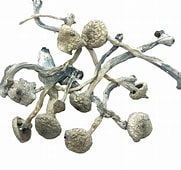What is the nutritional value of mushrooms?
are mushrooms good for you ? , Mushrooms are edible fungus that can provide several important nutrients. The many kinds of mushroom have varying compositions and nutritional profiles.

From puffballs to truffles, mushrooms can range from everyday fare to a costly delicacy. People can buy them fresh, canned, or dried.
In 2015, each person in the United States consumed, on average, around 3 pounds of mushrooms, according to the Agricultural Marketing Resource Center.
Beyond the diet, mushrooms feature in some types of traditional medicineTrusted Source.
In this article, learn about the nutritional contents and possible health benefits of eating mushrooms. We also give some tips on preparing and serving them and describe the risks.
Health benefits(are mushrooms good for you)
Share on PinterestThe protein, vitamins, and minerals in mushrooms may be beneficial to a person’s health.
Mushrooms contain protein, vitamins, minerals, and antioxidants. These can have various health benefits.
For example, antioxidants are chemicals that help the body eliminate free radicals.
Free radicals are toxic byproducts of metabolism and other bodily processes. They can accumulate in the body, and if too many collect, oxidative stress can result. This can harm the body’s cells and may lead to various health conditions.
Among the antioxidant agents in mushrooms are:
-
selenium
-
vitamin C
-
choline
Learn more about antioxidants here.
Cancer
The antioxidant content in mushrooms may help preventTrusted Source lung, prostate, breast, and other types of cancer, according to the National Cancer Institute.
Some sources have suggested that selenium may help prevent cancer, but a Cochrane review, from 2017, found no evidence to confirm this.
Mushrooms also contain a small amount of vitamin D. There is some evidenceTrusted Source that vitamin D supplementation may help prevent or treat some kinds of cancer, though according to a 2018 report, the effect may vary from person to person.
Choline is another antioxidant in mushrooms. Some studiesTrusted Source have suggested that consuming choline can reduce the risk of some types of cancer, but at least one other studyTrusted Source has indicated that it may increase the risk of prostate cancer.
It is worth noting that consuming a nutrient as a supplement is not the same as consuming it in the diet.
What links are there between cancer and the diet? Find out here.
Diabetes
Dietary fiber may help manage a number of health conditions, including type 2 diabetes.
A 2018 reviewTrusted Source of meta-analyses concluded that people who eat a lot of fiber may have a lower risk of developing type 2 diabetes. For those who already have it, fiber may help reduce blood glucose levels.
A cup of sliced, raw mushrooms, weighing 70 gramsTrusted Source (g), provides almost 1 g of fiber.
The Dietary Guidelines for Americans recommend that adults consume 22.4–33.6 gTrusted Source of dietary fiber each day, depending on sex and age.
Mushrooms, beans, some vegetables, brown rice, and whole-grain foods can all contribute to a person’s daily requirementof fiber.
Heart health
The fiber, potassium, and vitamin C in mushrooms may contribute to cardiovascular health.
Potassium can help regulate blood pressure, and this may decrease the risk of hypertension and cardiovascular disease. The American Heart AssociationTrusted Source (AHA) recommend reducing the intake of added salt in the diet and eating more foods that contain potassium.
According to current guidelinesTrusted Source, people should consume around 4,700 milligrams (mg) of potassium each day. Mushrooms appear on the AHA’s list of foods that provide potassium.
A 2016 studyTrusted Source concluded that people with a vitamin C deficiency were more likely to experience cardiovascular disease and suggested that consuming vitamin C may help prevent this illness. They did not find evidence that vitamin C supplements can reduce the risk of this type of disease.
There is some evidenceTrusted Source that consuming a type of fiber called beta-glucans may lower blood cholesterollevels. Beta-glucans occur in the cell walls of many types of mushrooms.
The Mediterranean diet includes a range of plant foods, such as mushrooms. Find out more.
In pregnancy
Many women take folic acid, or folate, supplements during pregnancy to boost fetal health, but mushrooms can also provide folate.
A cup of whole, raw mushrooms contains 16.3 microgramsTrusted Source (mcg) of folate. Current guidelines recommend that adults consume 400 mcgTrusted Source of folate each day.
What foods should you eat and avoid during pregnancy? Find out here.
why are mushrooms good for you ( Other benefits)
Mushrooms are rich in B vitamins, such as:
-
riboflavin, or B-2
-
folate, or B-9
-
thiamine, or B-1
-
pantothenic acid, or B-5
-
niacin, or B-3
B vitamins help the body get energy from food and form red blood cells. A number of B vitamins also appear to be important for a healthy brain.
The choline in mushrooms can help with muscle movement, learning, and memory. Choline assists in maintaining the structure of cellular membranes and plays a role in the transmission of nerve impulses.
Mushrooms are also the only vegan, nonfortified dietary source of vitamin D.
Several other minerals that may be difficult to obtain from a vegan diet — such as selenium, potassium, copper, iron, and phosphorus — are available in mushrooms.
Nutritional content (are mushrooms good for you)
Many types of mushroom are edible, and most provide about the same quantities of the same nutrients per serving, regardless of their shape or size.
The table below shows how much of each nutrient a 96-g cup of whole, raw mushrooms provides. It also shows how much of each nutrient adults should consume every day, depending on their sex and age.
NutrientAmount of nutrientTrusted Source in 1 cup of mushroomsRecommended daily intakeTrusted SourceEnergy (calories)21.11,600–3,200Protein (g)3.046–56Carbohydrate (g)3.1, including 1.9 g of sugar130Calcium (mg)2.91,000–1,300Iron (mg)0.58–18Magnesium (mg)8.6310–420Phosphorus (mg)82.6700–1,250Potassium (mg)3054,700Sodium (mg)4.82,300Zinc (mg)0.58–11Copper (mcg)305890–900Selenium (mcg)8.955Vitamin C (mg)2.065–90Vitamin D (mg)0.215Folate (mcg DFE)16.3400Choline (mg)16.6400–550Niacin (mg)3.514–16
Mushrooms also contain a number of B vitamins, including thiamine, riboflavin, B-6, and B-12.
Tips for preparing mushrooms( are mushrooms good for you)
There are around 2,000 edible varieties of mushrooms, but only a handful are available on the American market.
They include:
-
white, or “button”
-
brown cremini
-
portobello
-
shiitake
-
oyster
-
wood ear
-
enoki
Seasonal varieties available at farmer’s markets and some grocery stores include:
-
morel
-
chanterelle
Some people pick wild mushrooms, but it is essential to know which are edible, as some contain deadly toxins.
Tips for buying
When buying fresh mushrooms, chose ones that are firm, dry, and unbruised. Avoid mushrooms that appear slimy or withered.
Store mushrooms in the refrigerator. A person should not wash or trim them until it is time to cook with them.
Tips for serving
The Environmental Working Group, which assesses foods for their pesticide contents, placed mushrooms that grow in the U.S. in its 2019 list of the 15 cleanest foods, referring to relatively low traces of pesticides.
However, people should still wash and clean them carefully before using them to remove any soil and grit. If necessary, trim the ends of the stalks. You can use mushrooms whole, sliced, or diced.
To incorporate more mushrooms into the diet, try:
-
sauteing any type of mushroom with onions for a quick, tasty side dish
-
adding mushrooms to stir-fries
-
topping a salad with raw, sliced cremini or white mushrooms
-
stuffing and baking portobello mushrooms
-
adding sliced mushrooms to omelets, breakfast scrambles, pizzas, and quiches
-
sauteing shiitake mushrooms in olive oil or broth for a healthful side dish
-
removing the stems of portobello mushrooms, marinating the caps in a mixture of olive oil, onion, garlic, and vinegar for 1 hour, then grilling them for 10 minutes
-
adding grilled portobello mushrooms to sandwiches or wraps
To prepare dried mushrooms, leave them in water for several hours until they are soft.
Possible health risks (why are mushrooms good for you)
Wild mushrooms can make a tasty dish, but the toxins in some mushrooms can trigger fatal health issues. Some wild mushrooms also contain high levels of heavy metals and other harmful chemicals.
To avoid these dangers, only consume mushrooms from a reliable source.
6 mind-blowing reasons why mushroom is the ultimate vegetarian superfood
If you’ve been ignoring this food up until now, then these amazing health benefits of mushrooms will change your mind.
Quit pills or gummies that promise to boost hair growth and switch to these natural sources of biotin for hair. Image courtesy: Shutterstock
Mushrooms belong to the fungus family which we categorise as vegetables because they are edible in nature. But have you ever wondered why this fungus is hailed as a superfood? Well that’s because there are several studies which prove that mushrooms are bursting with nutrition.
According to recent research published in the journal Food Science & Nutrition, adding mushrooms to our diet can help us make up for a shortfall of several nutrients, including vitamin D, potassium, fibre, copper, and selenium. All this, without adding to our calorie, fat, or sodium intake.
If these benefits of mushroom weren’t enough then, then here are six reasons why you should include mushroom in your daily diet:
1. Mushrooms have anticancer properties
According to the American National Cancer Institute, mushrooms’ vitamin D and antioxidant properties can protect against lung, breast, prostate, and other types of cancer by regulating the cells’ growth cycle. Along with this, mushrooms can also mitigate the risk of Alzheimer’s.
2. Mushroom can protect against heart disease
The fibre, potassium, and enzymes in mushrooms are responsible for reducing the risk of cardiovascular disease. The American Heart Association recommends increasing the intake of potassium-containing food to maintain good heart health.
3. Mushroom is a great diabetic food
You can eat mushrooms even if you are diabetic. The presence of beta-glucan in mushrooms regulates blood sugar levels and reduces the risk of developing type 2 diabetes.
Don’t undermine the power of mushrooms. It’s a super immunity food.
4. Mushroom supports your immune system
The selenium, alpha- and beta-glucan content found in mushrooms can boost the immune function and help your body fight against infections.
5. Mushrooms can strengthen your bones
Mushrooms are loaded with calcium and vitamin D, which help you meet your daily requirement for these nutrients. Because of this mushrooms contribute to strong bones.
6. Mushrooms can help you lose weight
Mushrooms are low in calories and help to burn fat by regulating metabolism in your body. This food is fat-free, cholesterol-free, and low in sodium.
Now that you know the many benefits of mushrooms, we’re sure you won’t just reach out to this food for its taste.
